San Diego Harbor South And Going Home (Page Three)

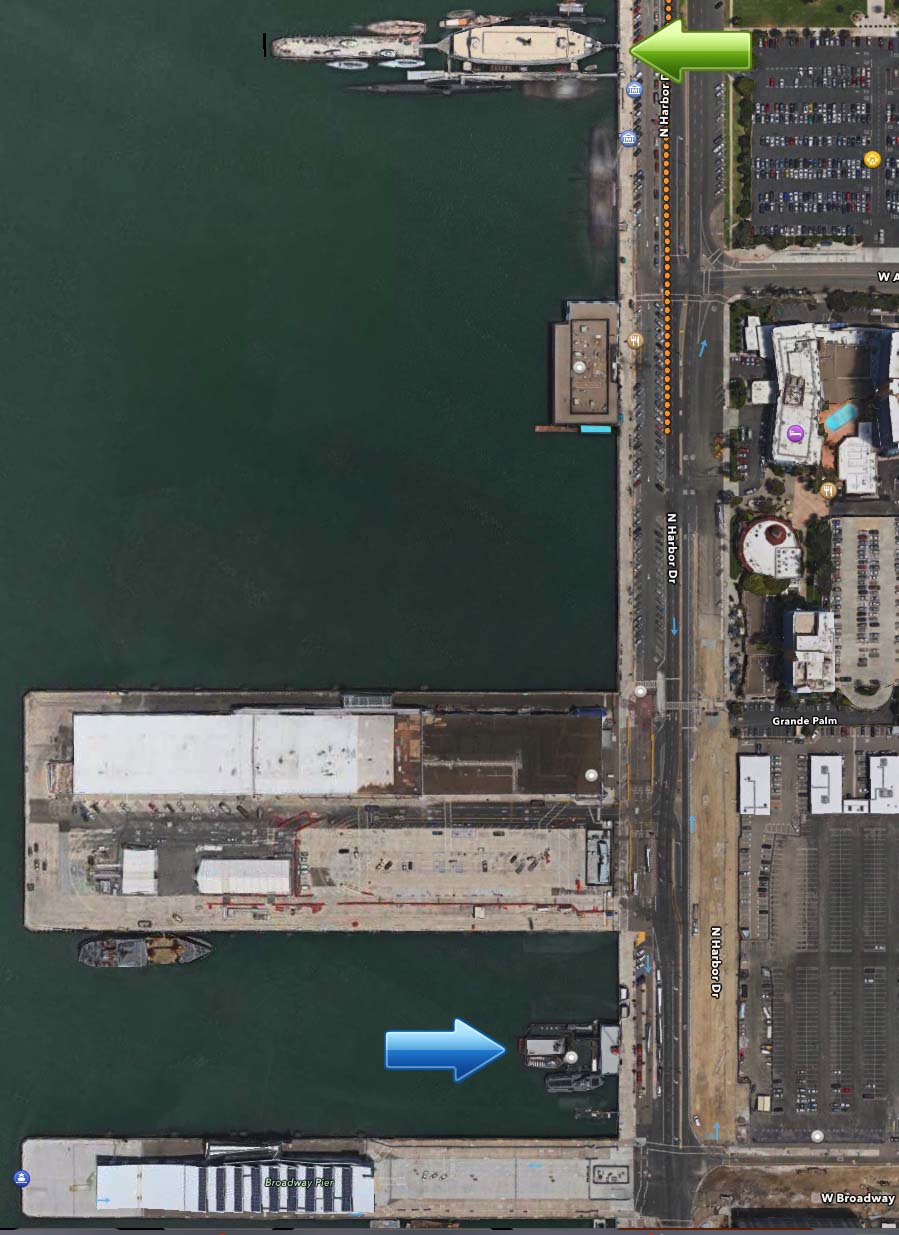
Short walk along the pier to the cruise departure point
Did You Know? - San Diego Bay is a natural harbor and deepwater port located in San Diego County, California near the U.S.–Mexico border. The bay, which is 12 miles (19 km) long and 1 to 3 miles (1.6 to 4.8 km) wide, is the third largest of the three large, protected natural bays on California's entire 840 miles (1,350 km) long coastline after San Francisco Bay and Humboldt Bay. The highly urbanized land adjacent to the bay includes the city of San Diego (eighth largest city in the United States) and four other cities, including National City, Chula Vista, Imperial Beach and Coronado.
Considered to be one of the best natural harbors on the west coast of North America, it was colonized by Spain beginning in 1769. Later it served as base headquarters of major ships of the United States Navy in the Pacific until just before the United States entered World War II, when the newly organized United States Pacific Fleet primary base was transferred to Pearl Harbor, Hawaii. However, San Diego Bay remains as a home port of major assets, including several aircraft carriers, of the United States Pacific Fleet, and as a result of base closures beginning in the 1980s, facilities in San Diego Bay are the only remaining major naval base facilities still in operation in the entire State of California.

We took the blue route today!
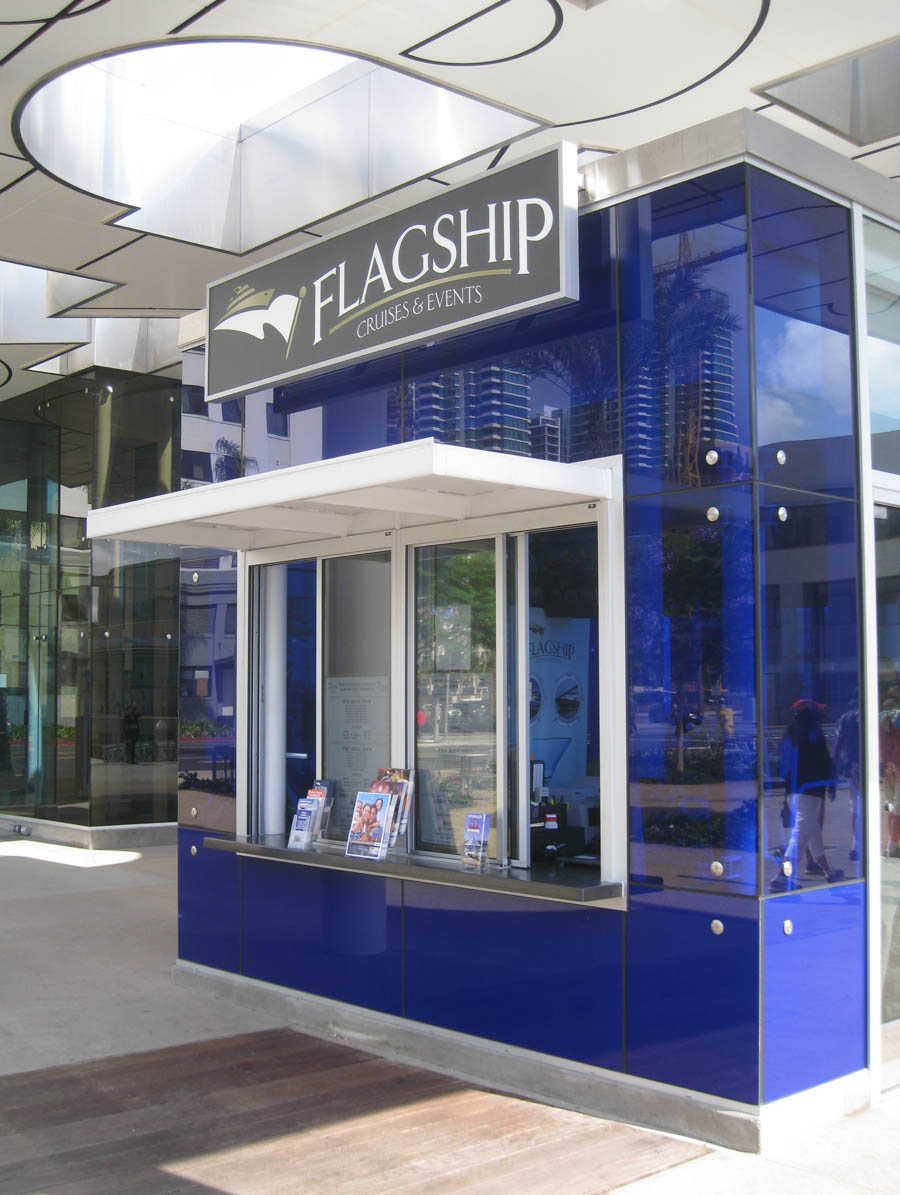
Tickets were $ 21/pp
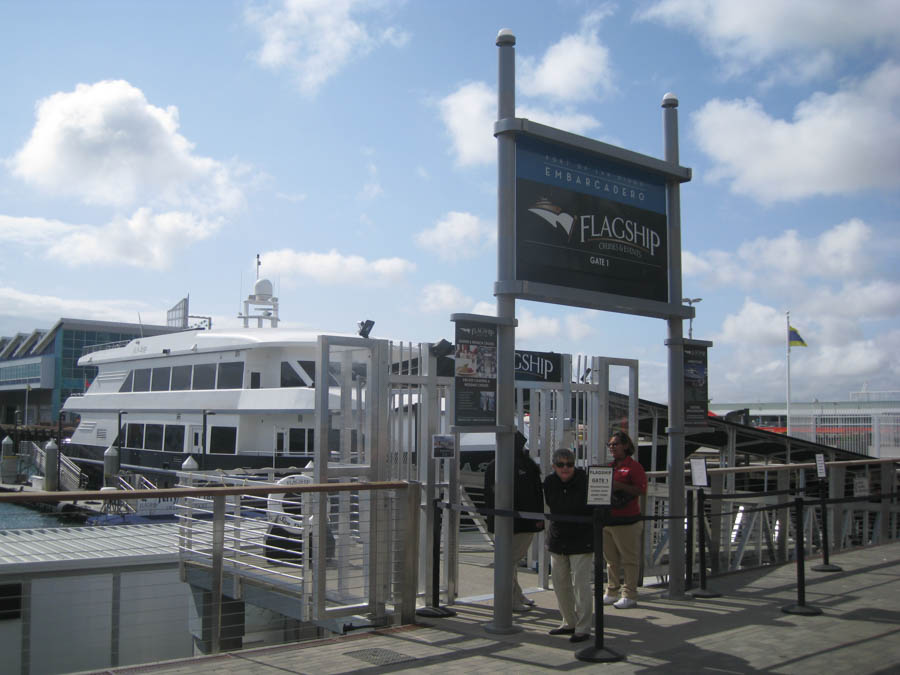
Sue waits in line
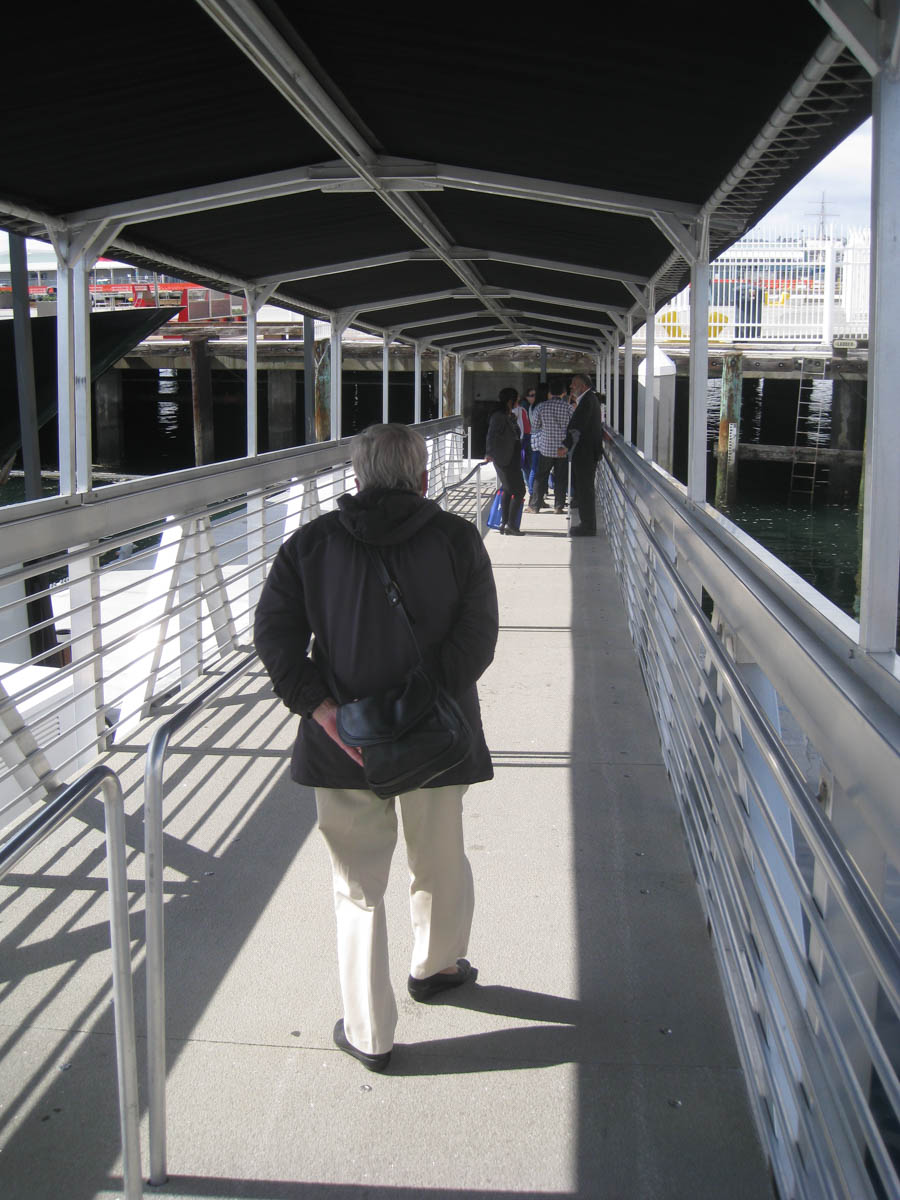
Walking the gangplank?

We are off...
Did You Know? - The San Diego–Coronado Bridge, locally referred to as the Coronado Bridge, is a "prestressed concrete/steel" girder bridge, crossing over San Diego Bay in the United States, linking San Diego with Coronado, California. The bridge is signed as part of State Route 75.

Beautiful span... The cars looks like ants crawling across the top of the bridge
Did You Know? - In 1951-52, the Coronado City Council initiated plans for bridge feasibility studies.
By 1964 the Navy supported a bridge if there was at least 200 feet (61 m) of clearance for ships which operate out of the nearby Naval Base San Diego to pass underneath it.
To achieve this clearance with a reasonable grade, the bridge length was increased by taking a curved path, rather than a more direct path to Coronado. The clearance would allow an empty oil-fired aircraft carrier to pass beneath it – it is not sufficient for Nimitz-class nuclear aircraft carriers in light load condition.
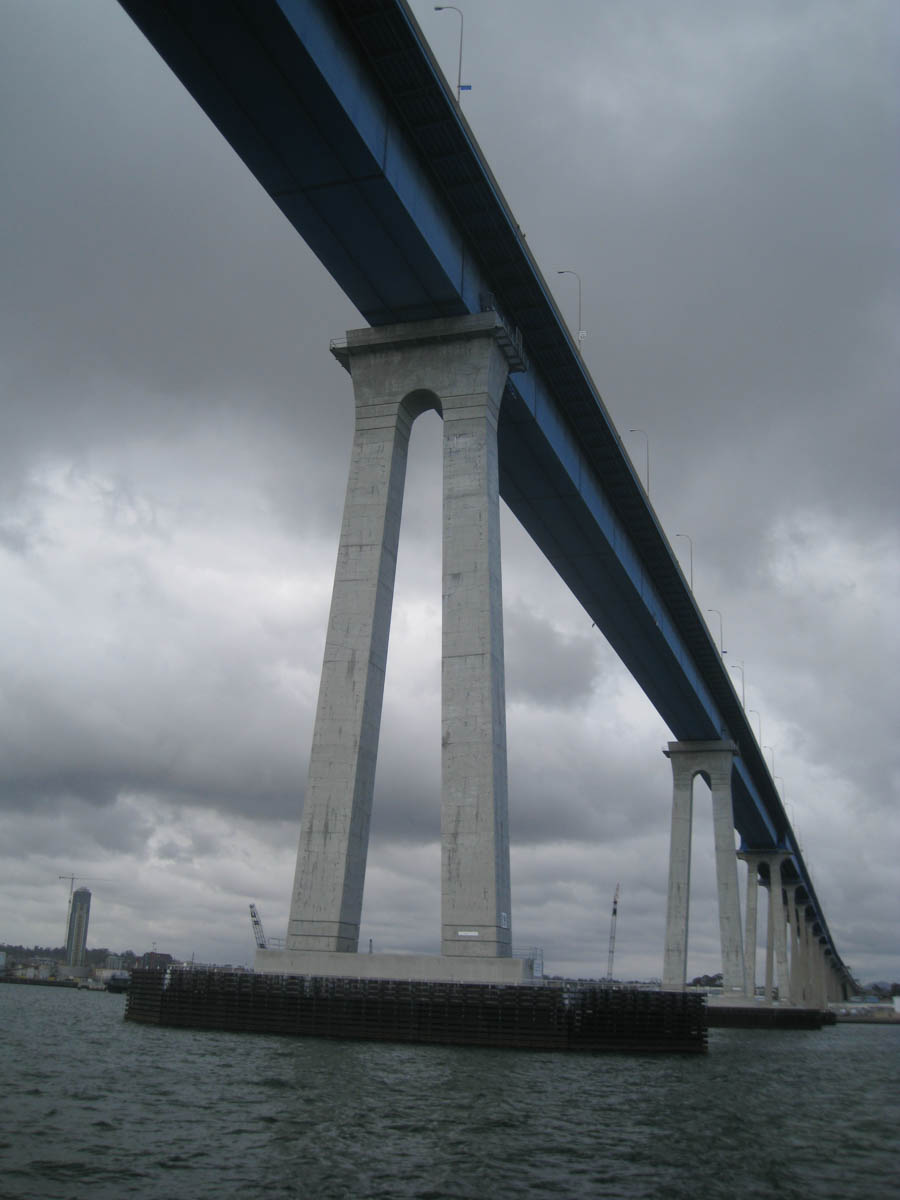
200 feet in the sky!
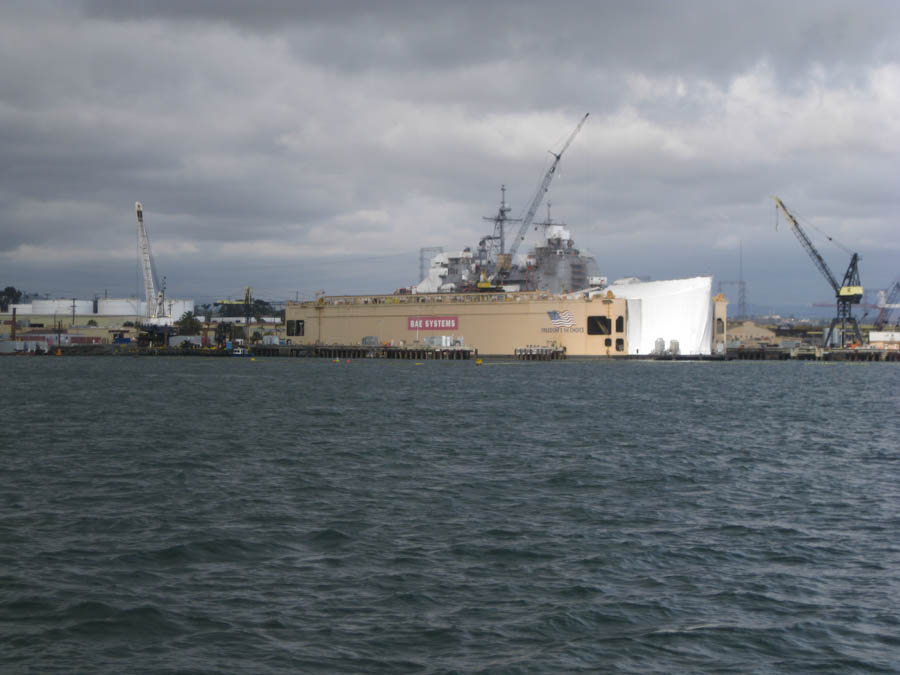
BAE does repair on warships in San Diego

The USS Bob Hope!
Did You Know? - USNS Bob Hope (T-AKR-300), the lead ship of her class of vehicle cargo ships for Army vehicle prepositioning, is the only naval ship of the United States to be named after Bob Hope, the entertainer. Very few ships of the United States Navy have been named after a person who was alive at the time of the christening.
The contract to build her was awarded to Avondale Industries on 2 September 1993 and her keel was laid down on 29 May 1995. She was launched on 27 March 1997, and delivered on 18 November 1998.
A non-combatant roll-on/roll-off (RORO) vessel crewed by civilian mariners under the Navy's Military Sealift Command, Bob Hope and other ships of the class are used to preposition tanks, trucks and other wheeled vehicles and supplies needed to support an army heavy brigade.

Security prevents us from getting closer

40 knots... That be moving!
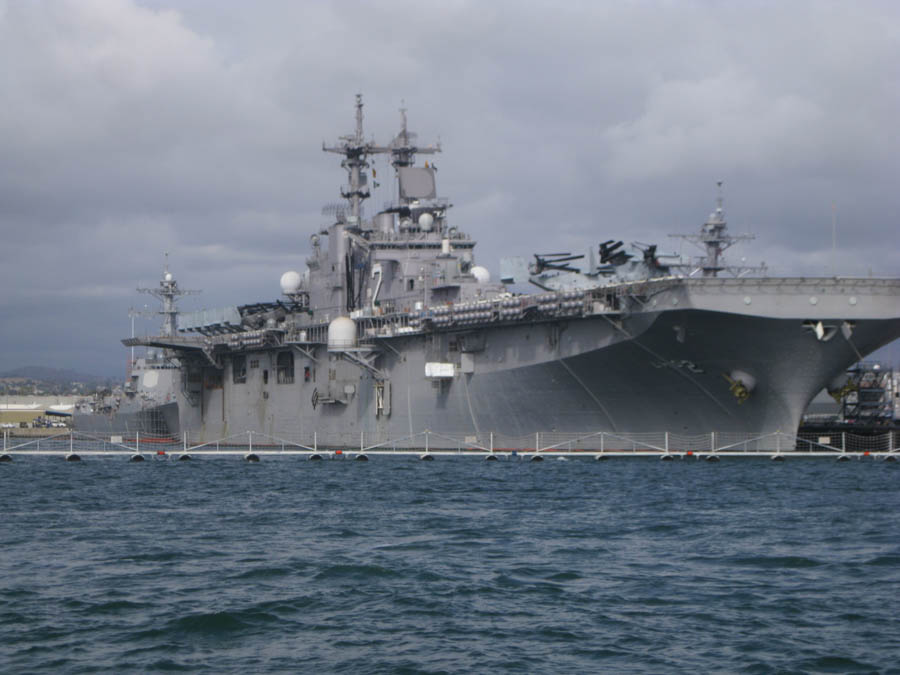
USS Essex
Did You Know? - An amphibious assault ship (also referred to as a commando carrier or an amphibious assault carrier) is a type of amphibious warfare ship employed to land and support ground forces on enemy territory by an amphibious assault.
The design evolved from aircraft carriers converted for use as helicopter carriers, but includes support for amphibious landing craft, with most designs including a well deck. Coming full circle, some amphibious assault ships now have a secondary role as aircraft carriers.
The role of the amphibious assault ship is fundamentally different from a standard aircraft carrier: its aviation facilities have the primary role of hosting helicopters to support forces ashore rather than to support strike aircraft. However, some are capable of serving in the sea-control role, embarking aircraft like Harrier fighters for CAP and ASW helicopters or operating as a safe base for large numbers of STOVL fighters conducting air support for the MEU once it has gone ashore. Most of these ships can also carry or support landing craft, such as air-cushioned landing craft (hovercraft) or LCUs.
The largest fleet of these types is operated by the United States Navy, including the Tarawa-class dating back to the 1970s and the larger Wasp-class ships that debuted in 1989. Amphibious assault ships are also operated by the French Navy, the. Italian Navy, the Republic of Korea Navy, the Royal Australian Navy, the Royal Navy of the United Kingdom, and the Spanish Navy.
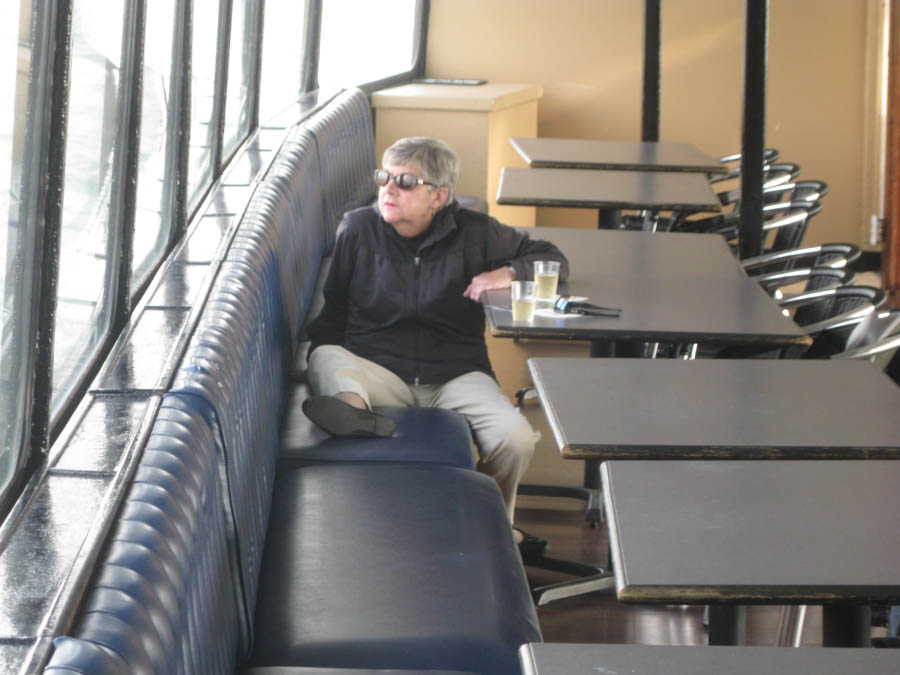
Watching the world go by!

Simply amazing machines

Coming back to downtown
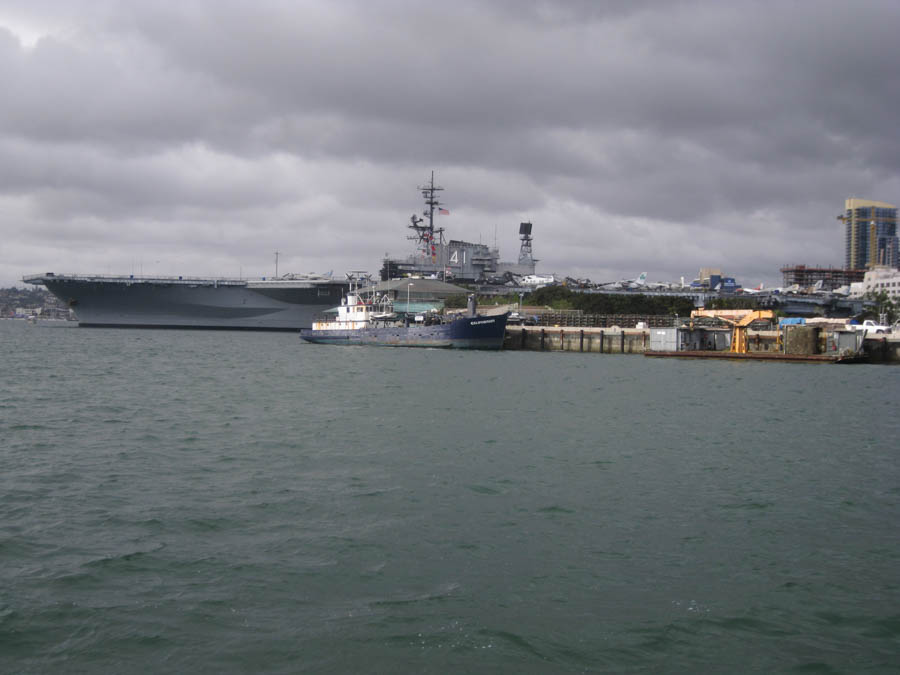
The Midway awaits us

It served us for almost 50 years!

The deck was enlarged in her 30th year
Did You Know? - USS Midway (CVB/CVA/CV-41) was an aircraft carrier of the United States Navy, the lead ship of its class. Commissioned a week after the end of World War II, Midway was the largest ship in the world until 1955, as well as the first U.S. warship too big to transit the Panama Canal. A revolutionary hull design, based on the planned Montana-class battleship, gave it better maneuverability than previous carriers. It served for an unprecedented 47 years, having seen action in the Vietnam War and been the Persian Gulf flagship in 1991's Operation Desert Storm. Decommissioned in 1992, it is now a museum ship at the USS Midway Museum, in San Diego, California, and the only remaining U.S. aircraft carrier of the World War II era that is not an Essex-class aircraft carrier.
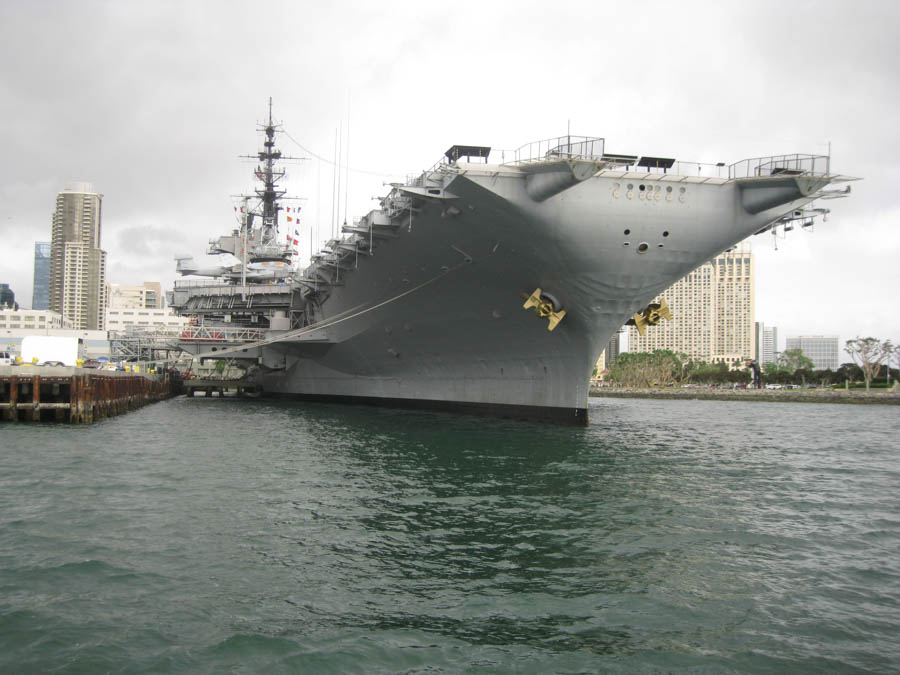
Beautiful ship!
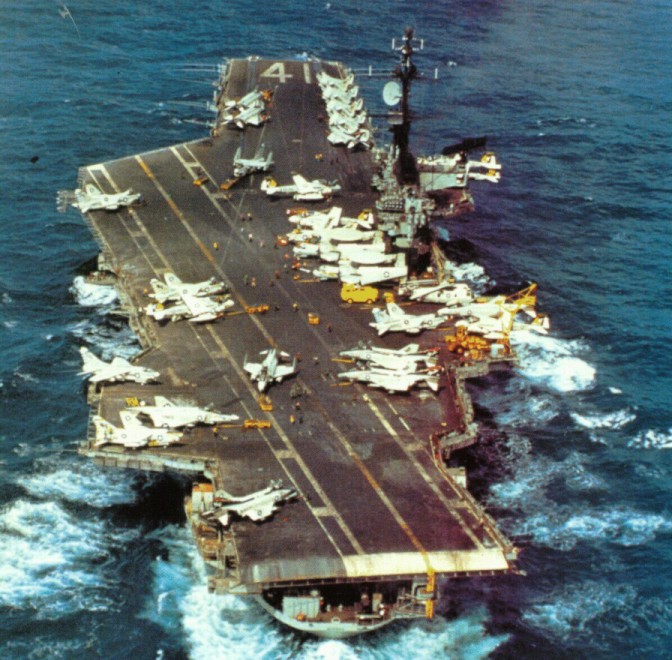
The Midway In South China Sea in 1974

Back to the harbor
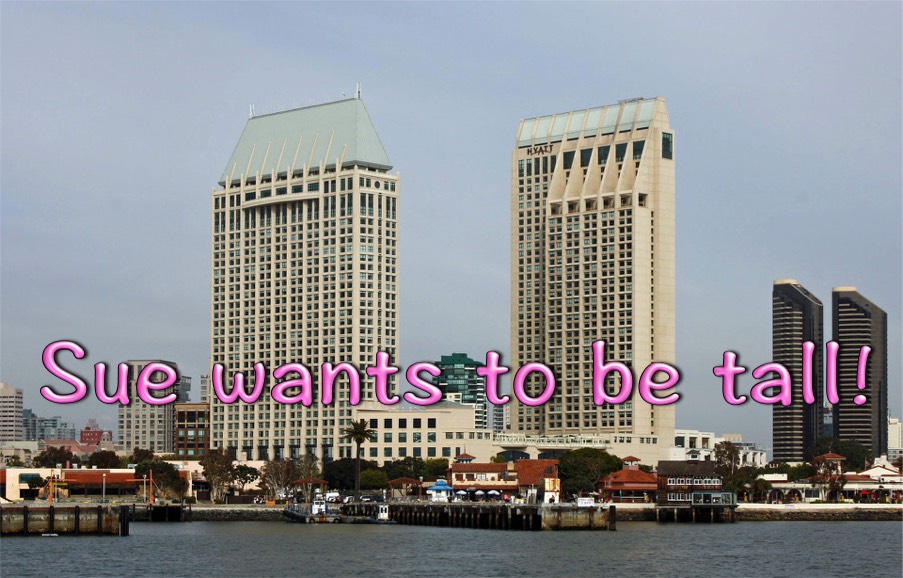
Sue's Translation: Let's find a bar at the top of a nice hotel and see the sights!
Paul's Translation: Let's scare Paul to death being
497 feet in the sky

Six blocks to the Manchester Grand Hyatt Hotel
(Top-left to bottom-right)

Looks pretty scary to Paul!
The "watering hole" was forty floors up...
and it had no water!

We were just there under the vridge a few minutes ago!

The boats look small from 40 floors up
Did You Know? - Manchester Grand Hyatt Hotel is a high-rise building in San Diego composed of two towers. The towers are the third and seventh tallest buildings in the city. Developed Doug Manchester and owned by Host Hotels & Resorts, the taller tower is the tallest building on the waterfront on the West Coast, and with 1,628 rooms, it is Southern California's largest hotel. Because of its proximity to the waterfront, as well as its amenities, the Manchester Grand Hyatt is referred to as a spa and resort.

Paul was just fine as long as he could hold on to the main support columns
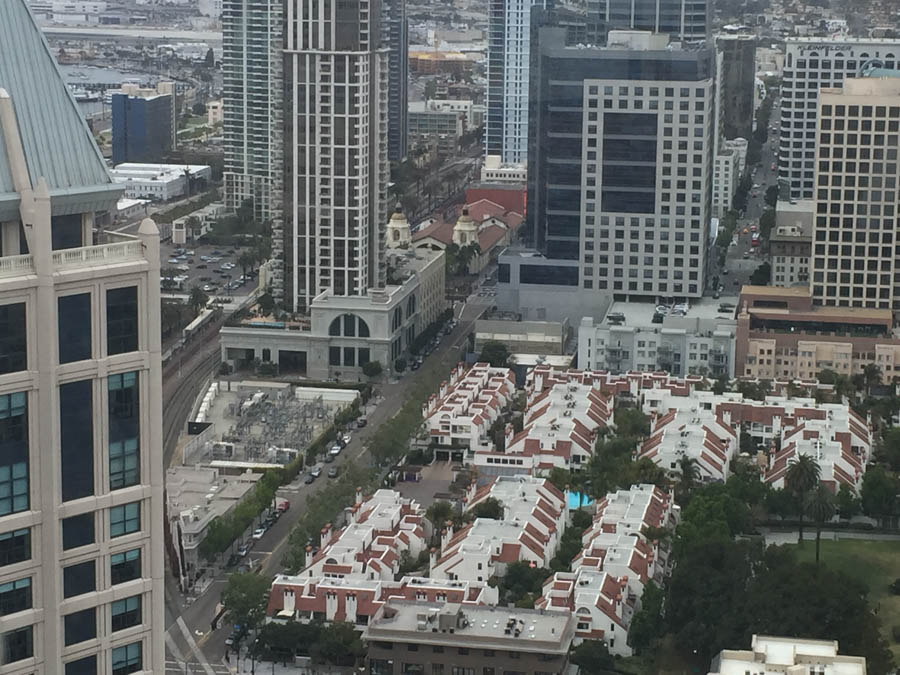
The train station (orange roof) seems small when viewed from this distance
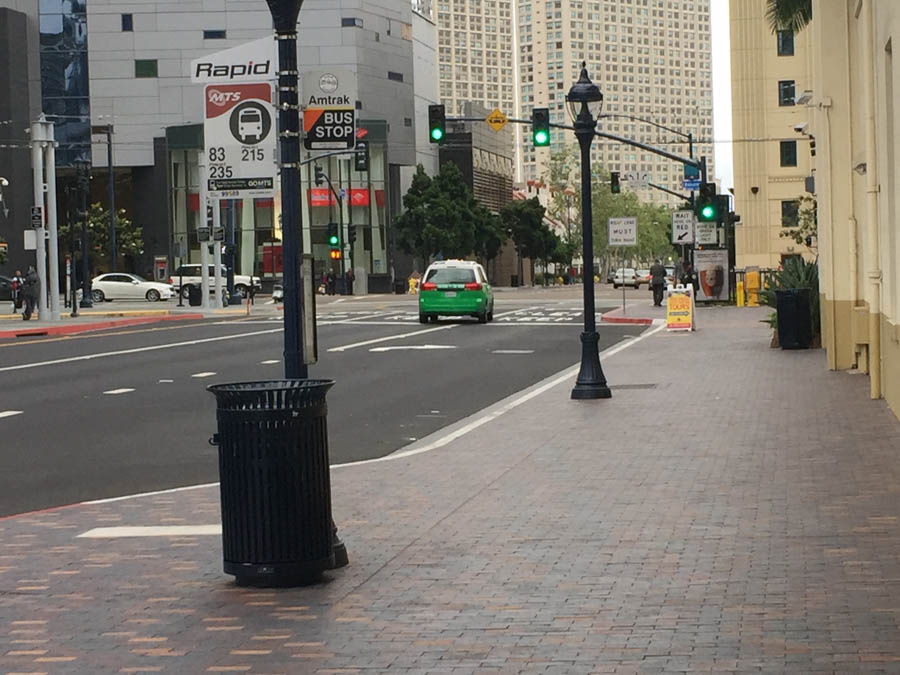
We took a cab back to the station
then we found out....

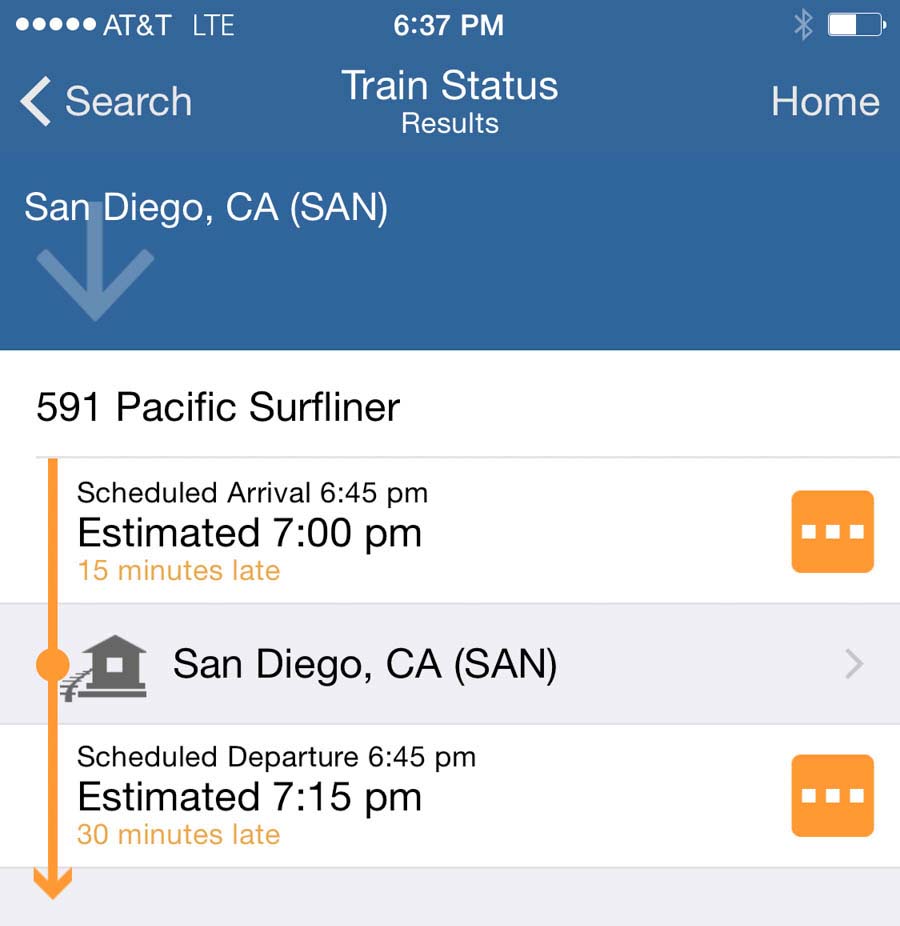
We checked the Amtrak Website and they missed by an hour
It finally arrived at 8:15! There was a fatality on the tracks near Oceanside

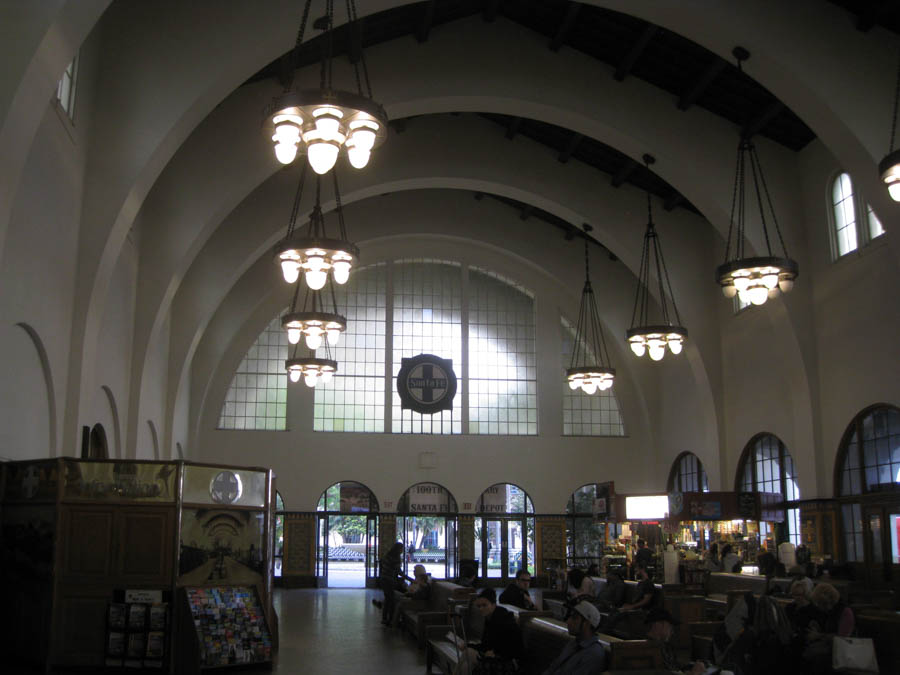
Upon arrival, we found out that the train was late!
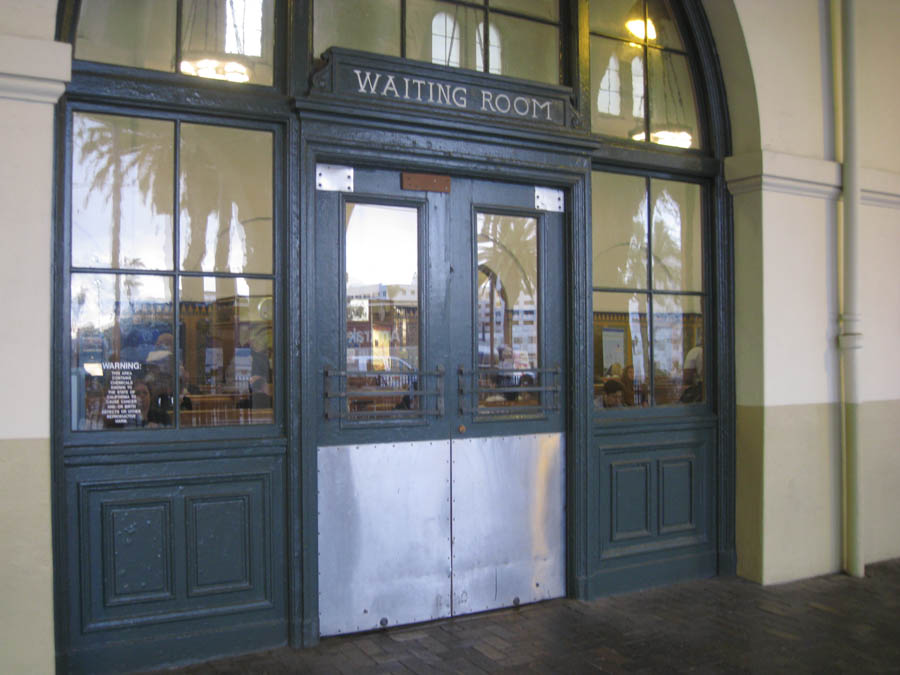
We decided to go have a drink at the local wine war


The Wine Bar was about a block away!
Sue says "We will have one of each!"

Our train all of a sudden arrived... Almost unannounced!

Then another one shows up!

As we began to cross over to our train, a speeder flew by!

Aw! Finally a nice seat!
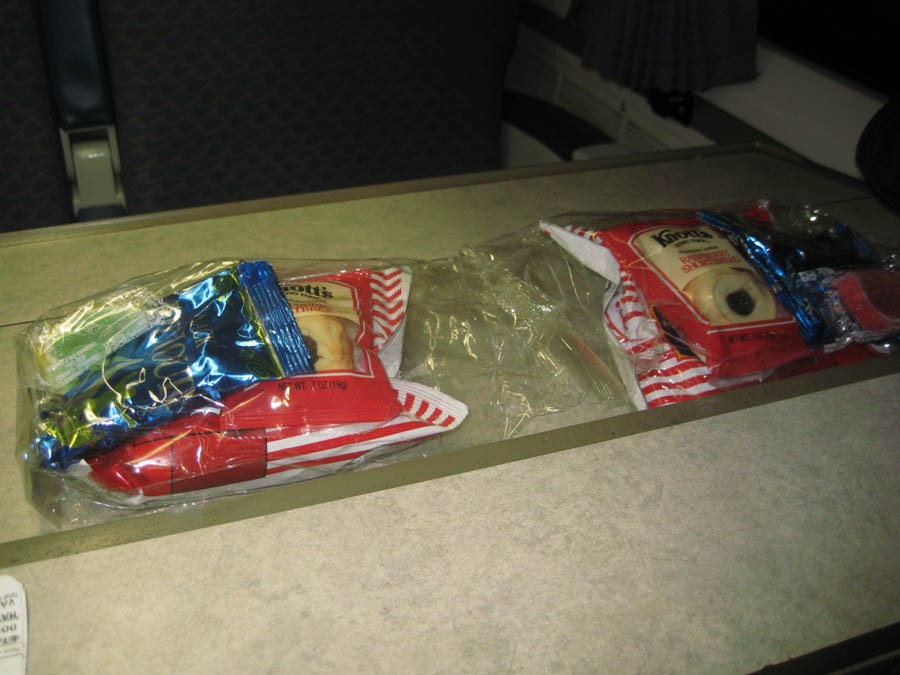
A bag of goodies.... We only ate one!

Now dinner is really served

We are on our way home

We made it!
Back in Fullerton... Our charriot awaits us for the ride home

We got home about 11:30... A great day!
